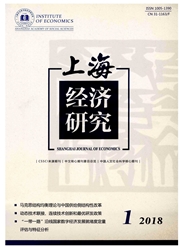

 中文摘要:
中文摘要:
余粮率和粮食贸易与发展中国家的城市化进程紧密相关,但是现有文献对这个问题没有给予足够的重视。本文通过建立理论模型,论证了封闭经济条件下余粮率对城市化水平提高的约束作用,以及开放经济条件下,粮食贸易会通过影响余粮率来影响城市化水平。基于亚洲发展中国家1993—2010年的面板数据,本文对理论模型的推论进行了检验,发现国际贸易总体上与城市化水平负相关,但是谷物贸易和非谷物贸易与城市化水平的关系不同,前者与它正相关,而后者与它负相关。另外,谷物净进口能够显著促进城市化,原因在于谷物净进口放松了国内余粮率对于城市化水平的约束。本文研究结果表明,发展中国家可以采取支持粮食生产或在保证粮食安全的前提下适当进口粮食的政策,这些政策可以放松余粮率的约束来促进城市化水平的提高。
 英文摘要:
英文摘要:
A grain surplus and the grain trade are closely related to the urbanization of developing countries. However, existing literature has not given adequate attention to this issue. Our paper develops a theoretical model to explain the mechanisms whereby changes in the grain surplus constrain the level of urbanization in a closed economy context and the grain trade affects the level of urbanization by acting on the grain surplus in an open economy context. A test of the theoretical model applied to some developing countries in Asia during the period 1993-2010 shows that international trade is generally negatively correlated with level of urbanization. However, cereal and non-cereal trade vary in terms of their relation to urbanization: whereas the former is positively correlated with level of urbanization, thelatter is negatively correlated with it. Since the net import of cereals relaxes the constraint imposed on the level of urbanization by the domestic grain surplus, it can have a marked positive effect on the course of urbanization. Our research findings show that provided grain production or grain security is guaranteed, developing countries may adopt a policy of importing an appropriate amount of grain to increase their level of urbanization.
 同期刊论文项目
同期刊论文项目
 同项目期刊论文
同项目期刊论文
 期刊信息
期刊信息
